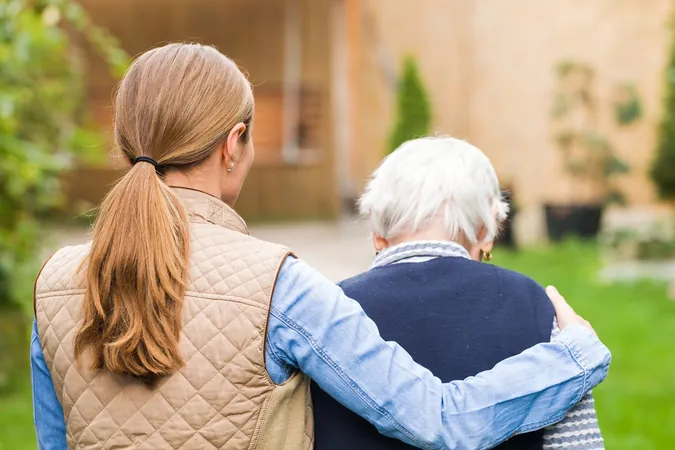
The Hidden Epidemic: Recognizing Depression in Older Adults
2025-09-01
Author: Emma
Understanding Depression in Seniors
Depression isn’t just a fleeting sadness; it’s a serious condition that can significantly impact older adults. Recent data reveals that this mental health issue is alarmingly prevalent among seniors, making it a pressing concern.
Shocking Statistics on Late-Onset Depression
According to the Mental Health Foundation, approximately one in five older adults faces depression at some point in their lives. What's even more alarming is that more than 50% of these cases are 'late onset,' meaning individuals are experiencing this mental health challenge for the first time as they age.
Unique Triggers for Seniors
Alexa Knight, director of the Mental Health Foundation, emphasizes, "Depression does not discriminate by age. Older adults often grapple with unique challenges such as physical health issues, loneliness, bereavement, and retirement—factors that can exacerbate their emotional struggles."
A Dire Warning: Depression and Suicide Risk
As we approach World Suicide Prevention Day on September 10, it’s crucial to connect the dots between depression and suicide in older populations. A staggering 71-95% of older individuals who died by suicide had a major psychiatric disorder, with depression being the most prevalent. It’s vital to recognize that depressive symptoms can be serious predictors of suicide.
The Invisible Burden of Depression
Research from Bupa unveils that a shocking 79% of seniors suffering from depression feel hopeless about their futures, while 81% argue that their condition often goes unnoticed. This
Hard-to-Recognize Symptoms in Older Adults
Experts note that depression can manifest differently in older individuals, often veiled beneath physical ailments such as fatigue, sleep problems, and a diminished appetite. Michelle Hinchley, a specialist mental health nurse at Bupa, states, "While typical signs include persistent low mood, older adults might exhibit symptoms that are less obvious and more physical.”
A Silent Struggle with Stigma
Sadly, depression in older adults often goes unnoticed, with only 5% of NHS therapy referrals for those over 65. This neglect can be tied to stigma and the tendency to dismiss their feelings as normal reactions to aging, illness, or loss.
The Importance of Early Detection
Recognizing depression early can dramatically improve a senior's quality of life. Hinchley highlights that it’s crucial to distinguish between transient feelings of grief, boredom, and persistent depression, which affects daily functioning.
How to Help: Spotting the Signs
Families and friends play a significant role in identifying depression in older individuals. If a loved one is less socially active or lives alone, the signs may be even harder to detect. Encouraging regular check-ins and open conversations can make a profound difference.
Creating Safe Spaces for Conversation
Hinchley advises that gentle, open-ended questions can facilitate dialogue. Listening without judgment allows seniors to express their feelings freely and can be incredibly relieving for someone who is struggling.
Encouraging Professional Help
If someone shows depressive signs, encouraging them to seek help can be vital. There are plenty of supportive resources available, from helplines to therapy options.
Breaking the Stigma Around Depression
Knight underscores the importance of understanding depression, not just for empathy but as a critical factor in preventing suicide. Open discussions can help dismantle the stigma and make seeking help feel less daunting.









 Brasil (PT)
Brasil (PT)
 Canada (EN)
Canada (EN)
 Chile (ES)
Chile (ES)
 Česko (CS)
Česko (CS)
 대한민국 (KO)
대한민국 (KO)
 España (ES)
España (ES)
 France (FR)
France (FR)
 Hong Kong (EN)
Hong Kong (EN)
 Italia (IT)
Italia (IT)
 日本 (JA)
日本 (JA)
 Magyarország (HU)
Magyarország (HU)
 Norge (NO)
Norge (NO)
 Polska (PL)
Polska (PL)
 Schweiz (DE)
Schweiz (DE)
 Singapore (EN)
Singapore (EN)
 Sverige (SV)
Sverige (SV)
 Suomi (FI)
Suomi (FI)
 Türkiye (TR)
Türkiye (TR)
 الإمارات العربية المتحدة (AR)
الإمارات العربية المتحدة (AR)